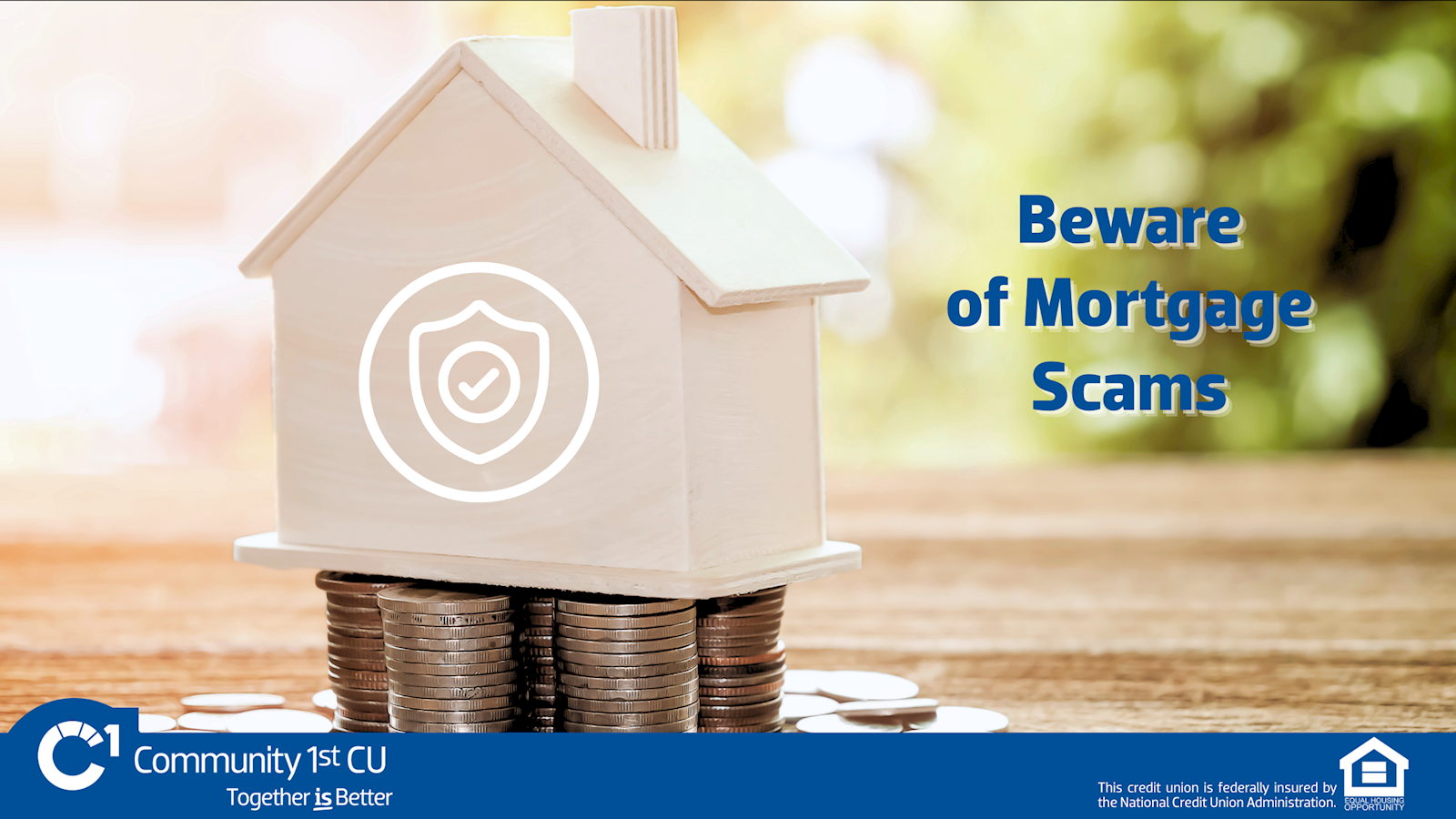Beware of Mortgage Scams
posted on Monday, June 30, 2025 in Fraud

Buying a home is a huge milestone, but unfortunately, there are fraudsters out there looking to take advantage of homeowners and homebuyers. Mortgage scams can lead to financial ruin, legal trouble, and even loss of your home. Awareness is your best defense, so let's dive into the most common scams and how to safeguard yourself.
Common Mortgage Scams
1. Foreclosure Relief Scams
Scammers prey on homeowners facing foreclosure by offering bogus “rescue” plans. They charge hefty fees with promises to negotiate with lenders, but they often disappear without doing anything, leaving homeowners in worse financial trouble.
2. Loan Modification Fraud
Fake mortgage professionals claim they can help modify loans for struggling homeowners, but they ask for upfront fees or personal information that they use for identity theft.
3. Bait-and-Switch Schemes
These scams occur when dishonest lenders or brokers promise a low-interest loan but sneak in higher rates, hidden fees, or unfavorable terms during the final paperwork.
4. Equity Stripping
Predatory lenders convince homeowners with financial difficulties to refinance their mortgage repeatedly, stripping them of home equity while loading them with more debt.
5. Fake Government Programs
Scammers impersonate government agencies, claiming to offer special programs or grants to assist homeowners. They ask for personal details and fees while delivering nothing in return.
6. Mortgage Postcard Scam
This scam involves fraudulent postcards sent to homeowners across the country, urging them to call a number regarding a "time-sensitive matter" on their mortgage. These postcards may come in different colors to appear more legitimate.
However, these mailings do not come from your financial institution. The fine print often states that the sender is "not affiliated with, sponsored by, and loan information not provided by (name of Financial Ins)."
If you receive one of these postcards, do not call the number listed or provide any personal information. Always contact your lender directly if you have concerns about your mortgage.
7. Mortgage Protection Text Message Scam
Another growing scheme involves unsolicited text messages from individuals claiming to be “underwriters” following up about your mortgage protection policy. These messages often reference your lender by name to appear legitimate and may say something like:
“Hi, this is the senior underwriter reaching out about the mortgage you closed with your credit union. You should have received information about the mortgage protection that covers your loan if you get sick or pass away. Have you received your policy in the mail?”
Messages like this are not from your lender. Scammers use these tactics to trick homeowners into responding, sharing personal information, or purchasing fake insurance products. If you receive a message like this, do not reply. Instead, contact your financial institution directly using verified contact information.
How to Protect Yourself
✅ Verify Credentials – Only work with licensed mortgage professionals. Check with state regulatory agencies.
✅ Be Wary of Upfront Fees – Legitimate lenders don’t ask for payment before providing services.
✅ Read the Fine Print – Don’t sign anything without carefully reviewing all terms.
✅ Resist High-Pressure Sales Tactics – Scammers push urgency to prevent you from thinking critically.
✅ Confirm Government Programs – If an offer claims to be from the government, check official agency websites for authenticity.
Fraud Prevention Starts with You
You're armed with the knowledge to protect yourself from fraudulent mortgage schemes. Scammers will always look for new ways to deceive, but staying informed and cautious is your best defense.
By recognizing warning signs, asking the right questions, and working with trusted lenders, you can safeguard your home and finances. Don't let fraudsters take advantage, stay alert, trust your instincts, and always verify before making any decisions.
Your Trusted Mortgage Partner
If you're in the market for a mortgage and want to work with a trusted lender, visit c1stcu.com/mortgage today for reliable financing options that put your best interests first.